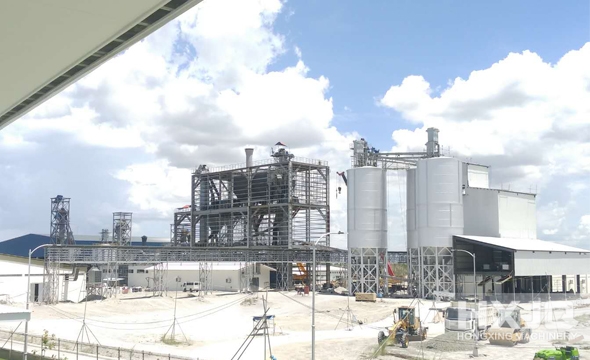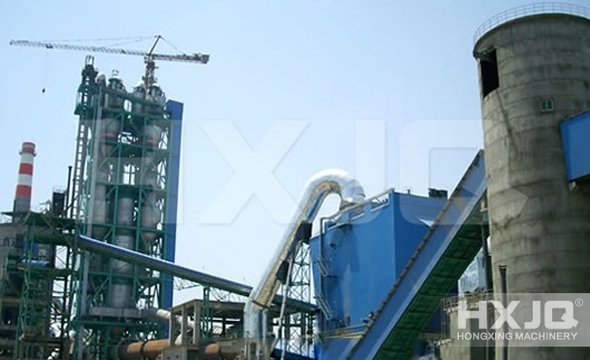
Cement Grinding Station is significant to a complete cement production line, while it is the final unit where cement clinker is to mixed with some materials, like limestone, and then they will be ground by ball mill for the finished product-cement, an independent line distinguished with a cement production line. Among which also includes cement grinding, cement packing, and bulk production process, as well raw materials preparation and homogenization, Its main purpose is to grind the cement clinker (and gelling agent, performance regulating materials, etc.) to the appropriate particle size (expressed in fineness, specific surface area, etc.), and the grinding materials are sent to the high-efficiency powder concentrator for sorting by the bucket elevator, The coarse powder regrinding continues to grind, and the finished cement is collected by the air box pulse bag filter and then sent to the finished cement warehouse for storage by the air conveying chute and bucket elevator. As for many corporates, the stage-cement grinding is not only the last procedure but is the largest electricity consumption. To optimize this process and maximize the interests of customers, we summarize several measures to help clients operate better.

1. Reasonably arrange the production sequence
Generally speaking, the first step is grinding, then packaging, and the final is the feeding system. The startup interval between these three parts must be more than 5 minutes, which can effectively ensure the stability of voltage and improve the utilization of electric energy resources. At the same time, we should strengthen scientific management, and the training of mill workers, making them learn to distinguish the grinding sound, so that they could adjust the feeding amount according to the grinding sound, to match the feeding amount with the grinding body, maintaining the relative stability of the feeding amount, and strengthen the maintenance of equipment to ensure the safe operation of the mill.
2. Reduce the particle size of clinker into the mill, adopt the "more crushing and less grinding" process
Pre-grinding equipment and the circular flow crushing before cement grinding shall be adopted to effectively reduce the particle size of materials so that the particle size of feeding materials will be less than 10mm, therefore, when these materials with such particle size are ground in the mill, the efficiency can be improved, and the particle size of cement products can reach 3 ~ 32 μ M, to effectively improve the quality of products. According to relevant statistics, the utilization rate of a crusher in electric energy is 30%, while that of a ball mill is only 5%. To effectively reduce power consumption, reduce cost and improve efficiency, it is very necessary to adopt the process transformation of "more crushing and less grinding", which is an important measure to improve the working efficiency of the mill.
3. Improve cement properties and add more mixed materials
Usually, cement products need to be mixed with mixed materials before leaving the factory, which can not only effectively improve the performance of cement, but also make cement suitable for different types of engineering construction. Moreover, adding mixed materials can also save cement clinker, which is equivalent to saving the amount of carbon dioxide, sulfur dioxide, and other pollutants discharged from the cement production process, meanwhile, it also can save energy consumption such as electricity and coal, to achieve energy conservation and emission reduction.
4. Rational use of grinding aid
Grinding aid is a new-type technology product, which can enhance performance and reduce cost. Grinding aid can separate the cement particles from each other, and separate the cement from steel balls. In this way, the fluidity of cement can be enhanced, promoting the working efficiency of the mill, improving its output, broadening the specific surface area, and effectively enhancing the strength of cement. LEARN MORE

Please fill in the form below or inquiry online to get price & service
 Chat Online
Chat Online
 Get Quote
Get Quote